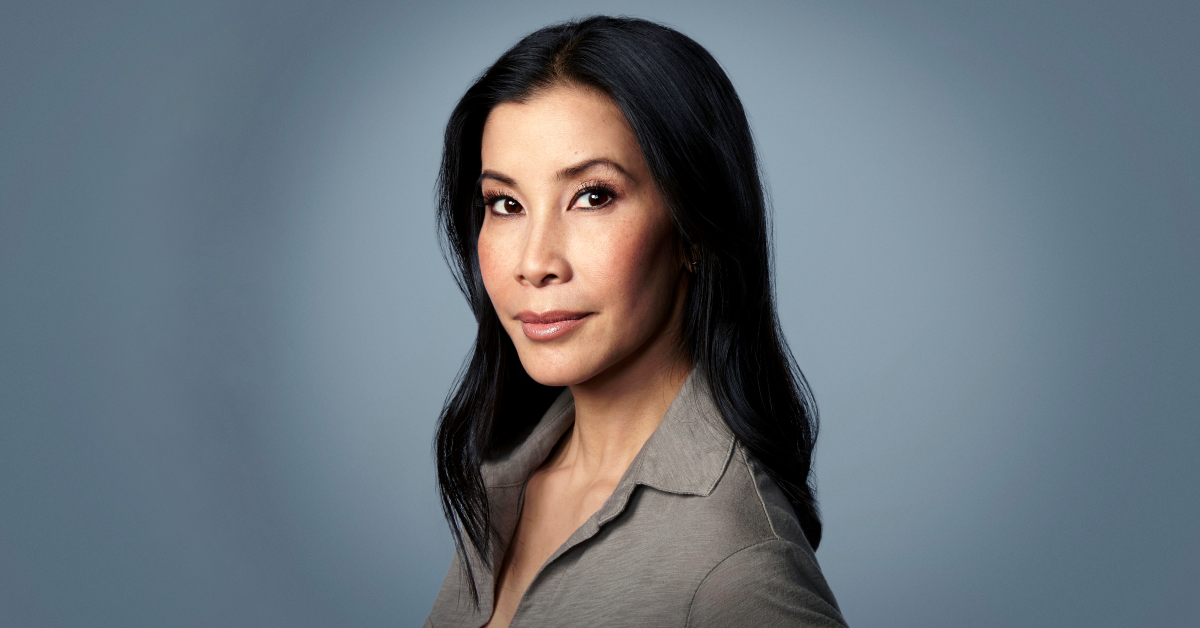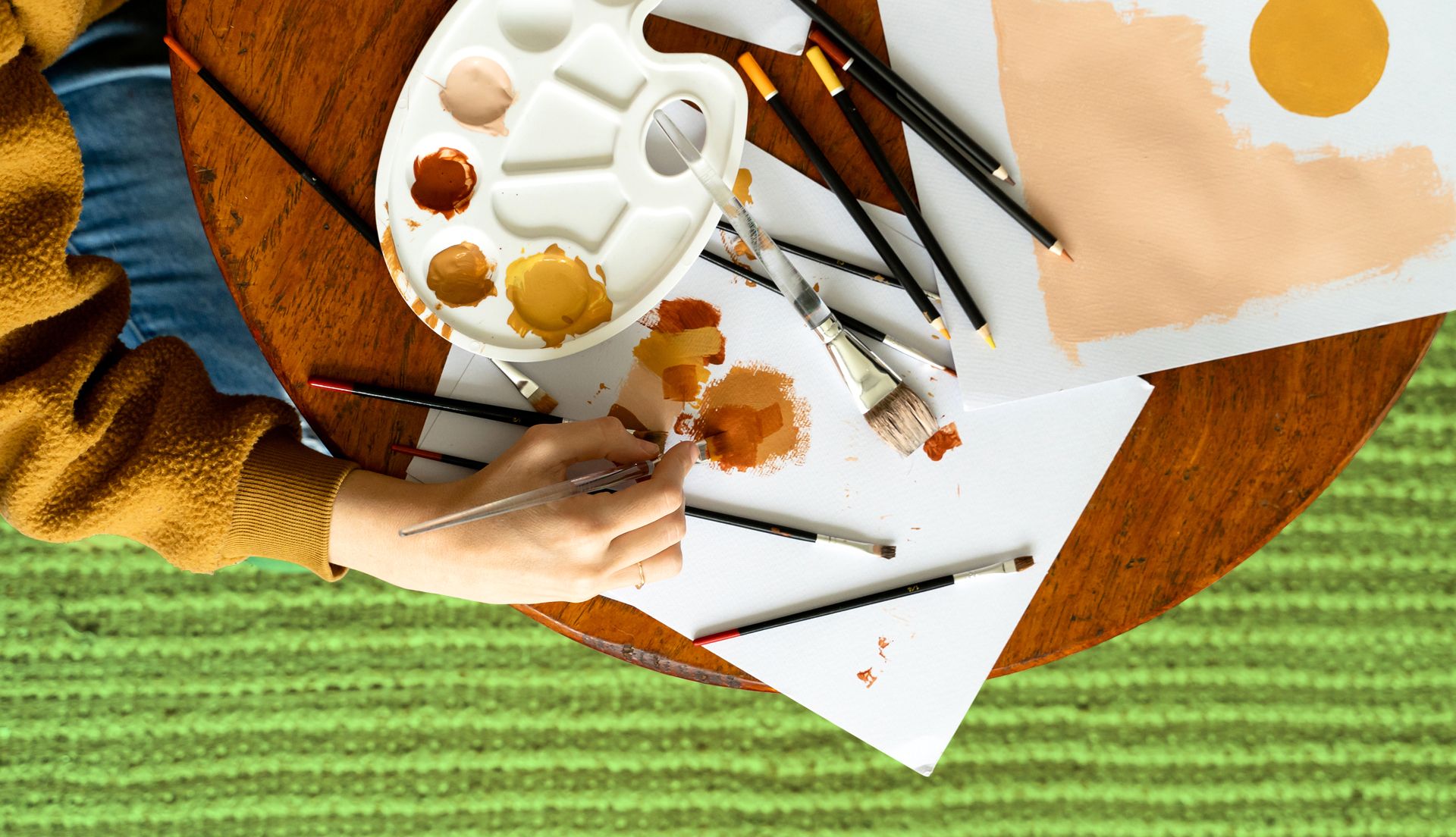Growing up as a Chinese American in a mostly white Sacramento, California, suburb, Lisa Ling rarely saw herself represented in the media. The experience left her resolved to change the narrative for others, inspiring a decades-long journalism career that has led her to tell untold stories from around the world.
“I used to fantasize about having a place somewhere on TV one day,” said Ling. “I used to watch The Brady Bunch and shows like Fantasy Island and no one looked remotely like me with the exception of Connie Chung. She was the only Asian American person that I had ever seen on a national stage, and she really sort of symbolized all that was intelligent and graceful. And so she really allowed me to know what was possible… and it really goes to show how much representation matters.”
Looking to Chung as a glimmer of hope, Ling went on to land her first local reporting job at 18, which led her to her first international correspondent gig in Afghanistan shortly thereafter. Today, as the host of CNN’s original series This Is Life and HBO Max’s Take Out, the award-winning journalist, author, and executive producer sat down with Chief Member Catherine Chen, CEO of anti–human trafficking organization Polaris, for a members-only conversation about Ling’s influential career journey. Together, the pair discussed the value of self-advocacy in business, treating yourself and others with empathy, and why it’s so important to see images of yourself in the media.
On Learning to Advocate for Herself as a Leader
“I never really thought that I could lead because I didn't see other people who looked like me, men and women included, at the highest levels. It really hasn't been until I think the last, I would say, decade or so that I've been introduced to more Asian American men [but] far fewer Asian American women in leadership positions. And we know the statistics bear out the fact that while Asian American women are hired at very high rates, they are the least likely to ascend up the corporate ladder and become executives. And to me, that statistic while confounding—when I think about my own journey and my fear and inability to advocate for myself—starts to make a little more sense.
“And so this has continued to be a journey for me and I am still learning. And it's interesting because I've gotten pretty decent at telling other people's stories, but it's just recently that I have felt more compelled to tell stories about my own community… and to stand up and advocate for myself. I know that when I advocate for myself, I'm advocating for so many women who are coming up behind me.”
On the Impact of Feeling Marginalized
“I grew up with such a conflict of identity as a young person. I never felt entirely American because I didn't look like the stereotypical image of what an American, or what I thought an American, was supposed to look like. Nor did I know anything about what it was like to be from China. I really struggled. 'Who am I? Where am I from?’ Because my history did not reflect Asian American stories or contributions, I think I spent so much of my early life just feeling like I was on the periphery.
“Even though I've worked in media for a very long time, somehow my job was to tell other people's stories. I got fairly decent at it, and I think the fact that I did grow up with shame and feeling marginalized, feeling like my community felt marginalized, I think that has allowed me to immerse myself among people who also feel that way.”
On the Importance of Diversity in Storytelling
“What happens when you don't have a frame of reference for an entire community's inclusion in your history books, or you don't see people who look like you reflected in politics, and the media portrayals of people who look like you are mocking or derisive? How are you supposed to feel? Are you supposed to feel like you belong? Or do you think it's more likely that you would just kind of feel like this perpetual foreigner? I would argue the latter.
“At the end of the day, these histories — they belong to all of us, not just Asian Americans. I think that the more we know about each other, inevitably, the more compassionate we become. This doesn't just apply to people who have a different skin color. I think that we probably go through our day interacting with so many people that we've never really gotten to know very well.
“Doing these kinds of shows that bring to the fore more diverse stories, more diverse histories. It gives me an opportunity to look, to learn more about my fellow humans. But my hope is that it gives the people who are watching our show a chance to get to know people they might have had an opinion about, might have judged, but never had the time, or taken the time, to get to know too deeply.”
On Dropping the ‘Superwoman’ Badge
“I think mothers are really tired right now. We are carrying so much on our shoulders, whether it's in our places of work or at home. Some of us have really, really great and helpful partners, but still, it's in our DNA. There's a reason why they call it a maternal instinct — even if you don't have children, you have that. So it's more important than ever, I think, to recognize that we're all feeling this and not try to feel like we need to live up to these impossible demands. We sometimes like to wear it as a badge, to be called a ‘supermom’ or a ‘superwoman.’ I mean, that's an impossible thing to be able to achieve, and I think that we need to stop putting pressure on our own selves to solicit those kinds of reactions — for ourselves but also for our fellow sisters who are just trying to keep things afloat.”
On Breaking Free From Our Personal Bubbles
“Unfortunately, I think that we've gotten to a place where we've sort of stopped listening to one another, and we've been existing in these bubbles in many ways. So many of us are on social media. I wish I wasn't on social media as much as I am. We follow the people who espouse the same views that we do and, it's interesting, not a day goes by that my search engines don't send me a pop-up that says, ‘Log in to personalize your feed.’ I don't want to personalize my feed. I want to know what everybody else is interested in, because the more that I personalize, I get pushed alongside people who just think the same way that I do, and that really cuts me off from knowing about how other people think.
“It's so important that we work to penetrate these bubbles. Right now we are living in this sort of headline/tweet kind of society where we are constantly swiping. We see these clickbait headlines. We don't even read. We don't even take the time to understand the context. I'm as much of a victim of it as anybody else. But I think we have to remind ourselves that the only way we can get to that [essence of a story] is if we really, really take the time to listen but also to understand context.”

